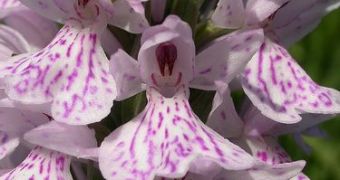A study made by researchers from the Royal Botanic Gardens, Kew's Jodrell Laboratory has revealed that some plants can adapt to environmental changes much faster than previously thought.
This study focused on epigenetics in European common marsh orchids has been published in Molecular Biology and Evolution and brings hope to plant conservation.
Scientists studied three newly formed species of fragile purple European marsh-orchids, or Dactylorhiza, of hybrid origin, and found out that despite the fact they have similar genetic heritage, they are considerably different in morphology, physical characteristics, ecological requirements and distribution.
Lead researcher Dr Ovidiu Paun says that “In contrast to the genetic information, which is a more “closed” system, the environment can alter the epigenetic context of individual species, and this adaptive pathway is complementary to the currently accepted view on evolution.
“The results in the paper demonstrate that Darwinian selection acts on epigenetic variation in the same way as on the genetic information to result in adaptation and divergence between species within a small number of generations.”
Epigenetics consist in hidden influences upon the functioning of the genes without any DNA sequence modification, that can be inheritable. This new discovery means that adapting to the changing environment will no longer take hundreds of years like it was previously thought and plants have a chance of survival.
Dr Paun continues: “Our results show the importance of the environment in altering inherited traits in these orchids and also contributing to biodiversity. The epigenetic level of natural variation can be adaptive and has the potential to be rapidly released, in a few generations, in contrast to genetic variation.”
Professor Mark Chase, keeper of Kew's Jodrell Laboratory, says that these results are “particularly relevant in the present context of widespread environmental challenges and give us more hope in the adaptive potential of organisms. It is not instantaneous, but it is much faster than what we thought previously.
“However, this also means that ex-situ conservation of threatened species, when individuals are removed from their original environment and are usually relocated to a botanical garden, is not the best strategy for their preservation, as it may delete any intrinsic epigenetic specificity. A much better solution remains their conservation in the wild.”

 14 DAY TRIAL //
14 DAY TRIAL //